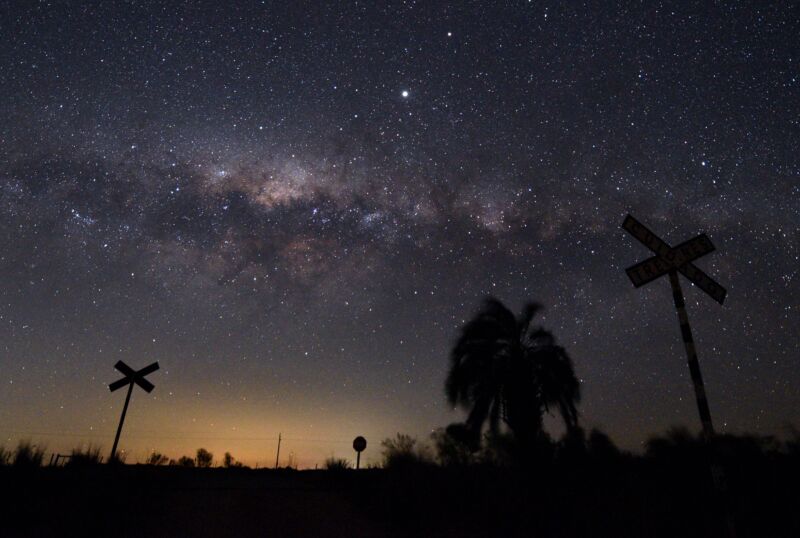Light pollution cut humanity’s connection with the stars—but we can restoreit

Enlarge / The Milky Way's Galactic Center and Jupiter (brightest spot at center top) are seen from the countryside near the small town of Rebolledo, Department of Florida, Uruguay in August 2020. (credit: Mariana Suarez/Getty Images)
Humans are naturally afraid of the dark. We sometimes imagine monsters under the bed and walk faster down unlit streets at night. To conquer our fears, we may leave a night light on to scare away the monsters and a light over the porch to deter break-ins.
Yet, in huddling for safety under our pools of light, we have lost our connection to the night sky. Star counts by public awareness campaign Globe at Night revealed that, between 2011 and 2022, the world's night sky more than doubled in artificial brightness. Yet local interventions can create meaningful change.
Light pollution is cutting us off from one of nature's greatest wonders, harming wildlife, and blocking research that could help fight climate change. Stars are more than pretty glimmers in the night sky. They have shaped the mythology of every human civilization. They guide birds on their astonishing migratory journeys. And now we need to do our bit to prevent light pollution so stars can be part of our future.